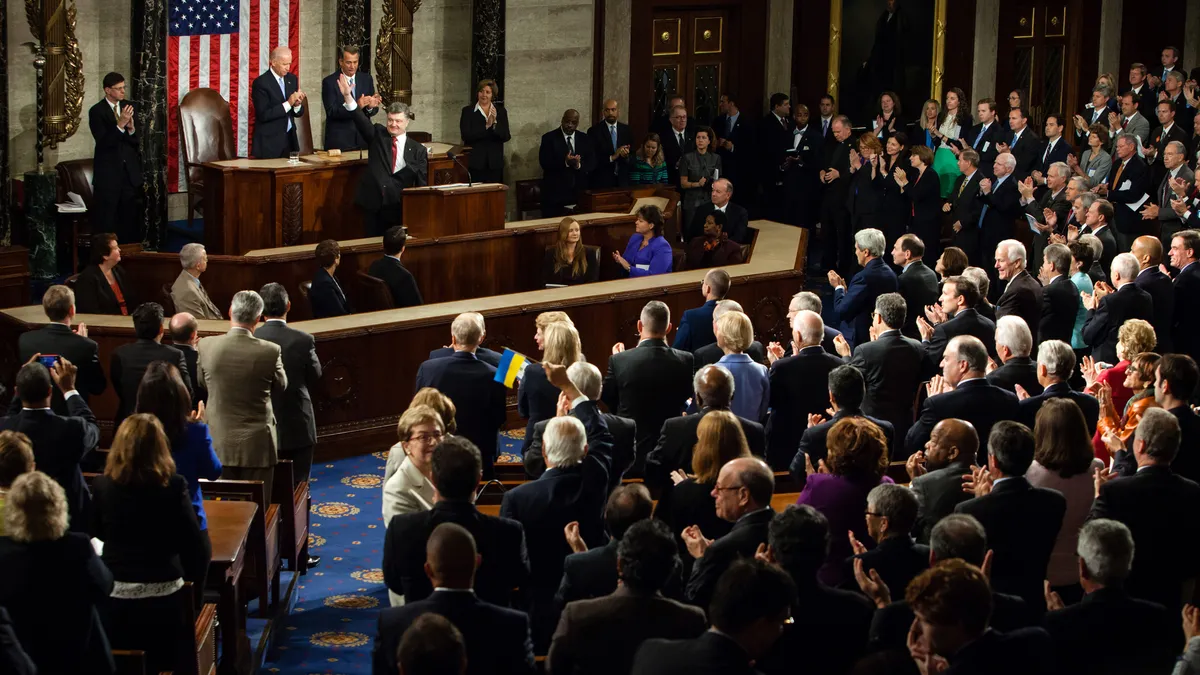Dive Brief:
- Advancing the Social Contract for Gig Economy Workers, a Washington, D.C. panel discussion, recently examined growing speculation about how government laws could change to accommodate the growing gig economy, Bloomberg BNA reports.
- One of the panelists, Rep. Tim Walberg (R-Mich.), who chairs the House Education and the Workforce Subcommittee on Health, Employment, Labor and Pensions, said 20th century labor laws are counter to a changing 21st century workforce. He added that technology and a demand for flexible workers makes this evident.
- The panel discussion took place as lawmakers consider portable benefits such as health coverage, unemployment insurance and retirement plans for gig workers.
Dive Insight:
Employers have fueled much of the growth in the gig economy, which has grown in excess of $800 billion. A Staffing Industry Analyst report shows that 40% of respondents said they would trade a traditional job for a gig industry job.
Ravin Jesuthasan, managing director at Willis Towers Watson, told HR that employers have discovered they can get the work done in 1/16th the time by hiring independent workers. Gig workers have provided an as-needed labor pool without the high costs associated with payroll workers, such as health coverage, vacation and sick pay, unemployment insurance and retirement plans. But this could change, if lawmakers decide to extend some benefits to gig workers.
Uber drivers have sued the company for what they say is misclassifying them as independent contractors rather than employees and protecting their pay. Legislation that extends some benefits to independent workers could make such legal fights difficult to wage or simply unnecessary.
Lawmakers are considering whether the worker classification system needs revising, given the differences in the types of gig workers, from independent contractors and temporary workers to freelancers and consultants. In an interview with HR Dive, Jack Schaedel, a Los Angeles attorney with the Dykema law firm, said the government continues classifying workers on the side of employees because independent workers don’t always pay taxes, which means revenue losses for the IRS.












